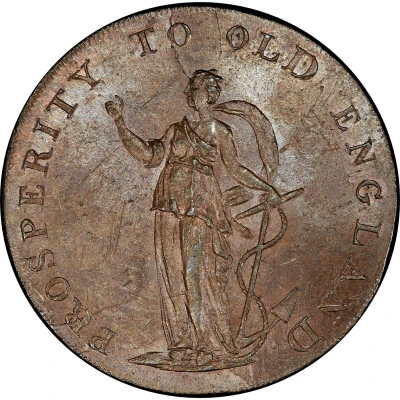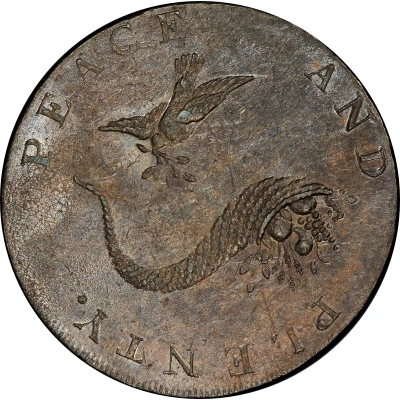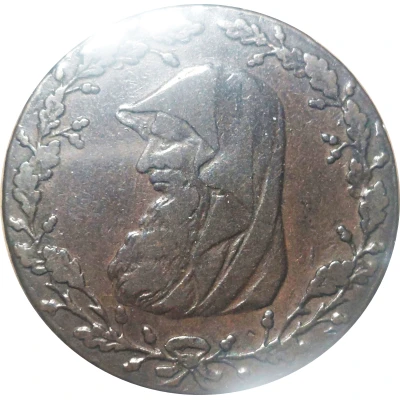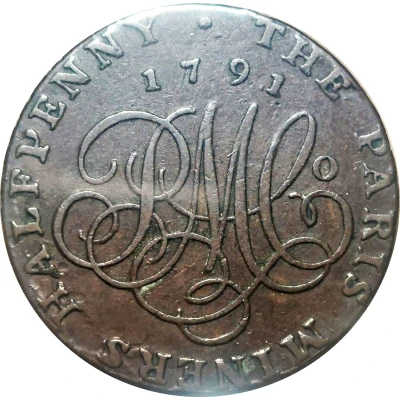
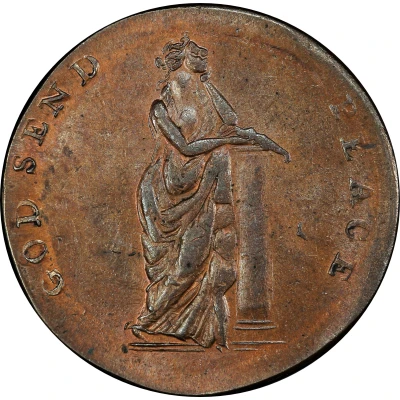

© PCGS
½ Penny Middlesex – National Series / Duke of York ND
| Copper | - | 28 mm |
| Issuer | United Kingdom (United Kingdom, British Overseas Territories and Crown Dependencies) |
|---|---|
| King | George III (1760-1820) |
| Type | Token |
| Years | 1790-1795 |
| Value | ½ Penny (1⁄480) |
| Currency | Conder tokens (1787-1797) |
| Composition | Copper |
| Diameter | 28 mm |
| Thickness | 2 mm |
| Shape | Round |
| Technique | Milled |
| Orientation | Medal alignment ↑↑ |
| Demonetized | 1797 |
| Updated | 2024-10-09 |
| Numista | N#80735 |
|---|---|
| Rarity index | 92% |
Reverse
Standing female figure (Fortitude), facing right, leaning upon a pillar, lettering around, no border.
Script: Latin
Lettering: GOD SEND PEACE
Edge
Plain
Comment
Duke of York God Send Peace London Halfpenny. National Series London (Middlesex) copper Conder halfpenny token undated (issued around 1795).Frederick, Duke of York and Albany (1763-1827), was the second son of King George III, who appointed him Commander in Chief in 1795. In 1809, he resigned this appointment as result of a scandal caused by the activities of his mistress. In 1811, he was reinstated and played a great part as a backscene administrator in organising the Duke of Wellington's victories in Portugal and Spain.
Interesting fact
One interesting fact about the Token ½ Penny (Middlesex – National Series / Duke of York) ND (1790-1795) from United Kingdom is that it was issued during a time of severe coinage shortages in the country. The coin was part of a series of tokens issued by private companies and individuals to address the lack of small denomination coins in circulation. The coin's design features the image of the Duke of York, who later became King George IV, on one side and the value of the coin on the other. Despite being made of copper, the coin was not officially recognized as legal tender by the British government, but it was still widely accepted and used in trade.
